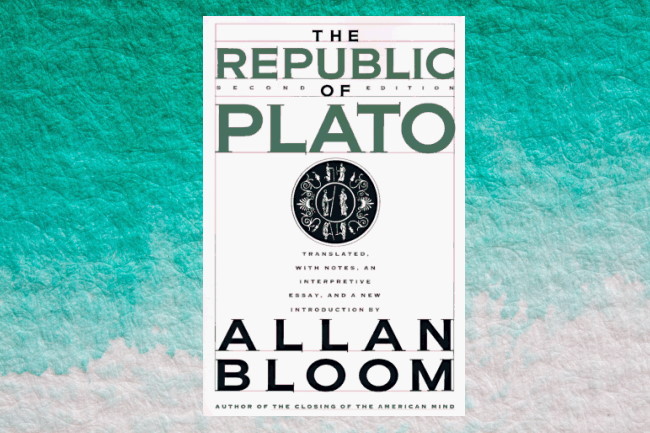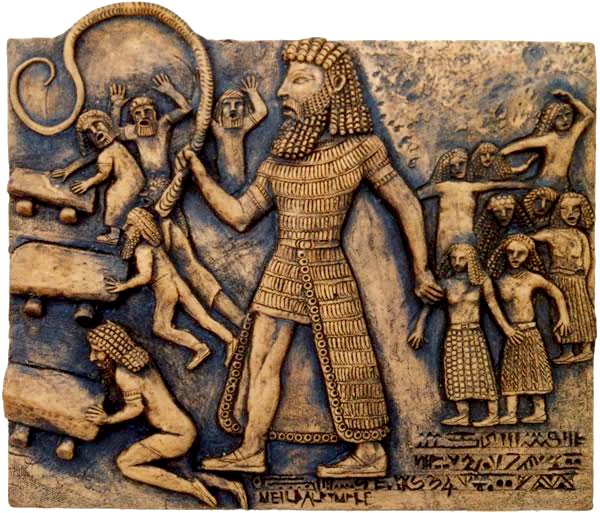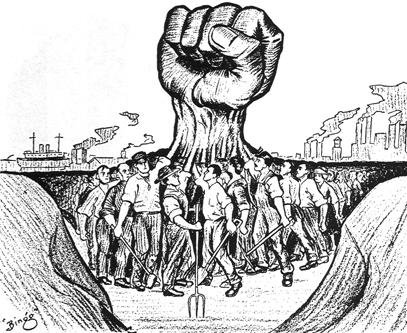Comment on Gilson' s Foreward to City of God
Aside from agreeing with Gilson’s general thesis -- that we wouldn't have the modern notion that we can create a universal and just society, had it not been for Augustine's City of God -- I will simply suggest that his last point is one worth considering. Although I don’t think we are anywhere near creating a just society on earth (according to the secular or the Christian model) – in fact, we seem to be going in quite the opposite direction! – it seems that in the present day, when the secular world seems more and more antagonistic toward the Christian faith than perhaps at any time since Augustine’s own day, it is more important than ever that separated Christian bodies unite with – or at least collaborate with – the Catholic Church, to make common cause toward building a just society consonant with, rather than striving against, Christian principles. (In fact we see, more and more, that other religions are willing to make common cause with Christianity against the assaults of secularism.)
Now, when Augustine used that term “Catholic,” he meant not only "that Church visibly united with the See of Peter (the pope)," but also “that Christian body which is free from heresy (or doctrinal error)” – i.e., not the Donatists, Pelagians, Arians, etc. From the Catholic perspective, these two uses of the term are identical: the Catholic Church proclaims the Christian faith in its fullness and without error through its infallible teaching authority (Magisterium). Any Christian individual or corporate body that denies any portion of the Catholic Church's teaching of the faith is at a spiritual disadvantage, because they do not know (or acknowledge) the faith in its fullness. According to this understanding, Protestants differ from Catholics not simply as one religious denomination differs from another (“different strokes for different folks”), but they necessarily suffer from the ill effects of doctrinal error, to the extent that they differ or dissent from the Catholic faith. It is an act of charity to try to heal the breach of separation, so that "separated brethren" may be restored to the full life of the Christian (i.e., Catholic) Church.
I don't say this polemically -- that is, I'm not trying to present an argument to support the Catholic view, but simply trying to articulate it. Gilson wrote as a Catholic when he said that "If we really want one world, we must have one Church, and the only Church that is one is the Catholic Church.” Gilson does not say so, but I think he would agree that this desire for a unified society ("one world, one Church") can best be achieved if separated Christian bodies are re-united with the Catholic Church. The Body of Christ must be whole in order to be healthy, and it must be healthy in order to be able, not only to defend itself against the encroachment of secularism, but to work toward building a just society, for the good of all (Christians, secularists, and others).
Sixty years after Gilson wrote his essay, the gulf between the Christian and the secular mindsets has become only more pronounced, much deeper and wider than it was just a few decades ago, to the point that no one denies the profound differences between the two. One evidence of this is the increasing stridency of self-proclaimed atheists. In the mid-20th century, public atheists could still cheerfully make common cause with religious believers, because they could recognize that the two shared many ideas about the common good; this seems no longer to be true. Public atheists today (notably Richard Dawkins and Christopher Hitchens) argue that religious believers are not only wrong (mistaken) but downright evil, and must be eradicated. (I believe it was Dawkins who recently suggested that inculcating religious faith in one's children should be considered child abuse.)
At any rate, there seems to be plenty of evidence that, today more than ever, Christianity in particular and religion more generally is under the guns of the secularists. (Remember that even in Augustine's own day, those who wanted to blame Christianity for the world's problems did so on religious, not atheistic, grounds.) I think this explains why both Pope John Paul II and Benedict XVI have labored so ceaselessly not simply to be “ecumenical” in the pallid sense often used by those who profess to embrace the “spirit of Vatican II” ("let's all make nice and pretend that all religions are equally good and true"), but in the more vital sense of trying to bring separated bodies of Christians back into the embrace of Mother Church, so that they may not only have the benefit of the sacraments of the Church and the authoritative teaching of the Roman Magisterium, but also so that the Body of Christ may be truly unified and at full strength – both lungs, all the arms & legs, fingers & toes cooperating fully with their Head, which is Christ, and his vicar on earth, the Roman pontiff. Only if the Body is whole and healthy can it most effectively build up society on earth, so that it more closely resembles the City of God, of which all Christians are citizens by virtue of their baptism, and to which all men are called.
We have seen in recent years a remarkable amount of progress toward this re-unification: not only the restitution of some of the ancient churches to the Roman Communion under Pope John Paul II but also great progress more recently with traditional-minded Anglicans (Anglicanorum Coetibus) and in ironing out remaining obstacles between Rome and the Eastern Orthodox. It should be noted that Rome has taken some pains to show that the legitimate spiritual patrimony of these other Christian traditions should be preserved and allowed to flourish in their own right, rather than trying to homogenize everyone to become cookie-cutter "Roman" Catholics; the present and former Holy Fathers have shown that this legitimate diversity, when secured by a common faith, enriches the Church, rather than weakening it.
In addition to corporate reunions, there have also been a number of public statements issued by representatives of the Catholic Church and of various Protestant bodies, affirming their common faith on many points, not only of doctrine but how that doctrine bears on Christians vis à vis the problems of modern society. If this trend of solidarity continues, there may be some real hope of the Christian Church in the future being able, as She has in the past, to make lasting and beneficial contributions to the common good of the City of Man.
Now, when Augustine used that term “Catholic,” he meant not only "that Church visibly united with the See of Peter (the pope)," but also “that Christian body which is free from heresy (or doctrinal error)” – i.e., not the Donatists, Pelagians, Arians, etc. From the Catholic perspective, these two uses of the term are identical: the Catholic Church proclaims the Christian faith in its fullness and without error through its infallible teaching authority (Magisterium). Any Christian individual or corporate body that denies any portion of the Catholic Church's teaching of the faith is at a spiritual disadvantage, because they do not know (or acknowledge) the faith in its fullness. According to this understanding, Protestants differ from Catholics not simply as one religious denomination differs from another (“different strokes for different folks”), but they necessarily suffer from the ill effects of doctrinal error, to the extent that they differ or dissent from the Catholic faith. It is an act of charity to try to heal the breach of separation, so that "separated brethren" may be restored to the full life of the Christian (i.e., Catholic) Church.
I don't say this polemically -- that is, I'm not trying to present an argument to support the Catholic view, but simply trying to articulate it. Gilson wrote as a Catholic when he said that "If we really want one world, we must have one Church, and the only Church that is one is the Catholic Church.” Gilson does not say so, but I think he would agree that this desire for a unified society ("one world, one Church") can best be achieved if separated Christian bodies are re-united with the Catholic Church. The Body of Christ must be whole in order to be healthy, and it must be healthy in order to be able, not only to defend itself against the encroachment of secularism, but to work toward building a just society, for the good of all (Christians, secularists, and others).
Sixty years after Gilson wrote his essay, the gulf between the Christian and the secular mindsets has become only more pronounced, much deeper and wider than it was just a few decades ago, to the point that no one denies the profound differences between the two. One evidence of this is the increasing stridency of self-proclaimed atheists. In the mid-20th century, public atheists could still cheerfully make common cause with religious believers, because they could recognize that the two shared many ideas about the common good; this seems no longer to be true. Public atheists today (notably Richard Dawkins and Christopher Hitchens) argue that religious believers are not only wrong (mistaken) but downright evil, and must be eradicated. (I believe it was Dawkins who recently suggested that inculcating religious faith in one's children should be considered child abuse.)
At any rate, there seems to be plenty of evidence that, today more than ever, Christianity in particular and religion more generally is under the guns of the secularists. (Remember that even in Augustine's own day, those who wanted to blame Christianity for the world's problems did so on religious, not atheistic, grounds.) I think this explains why both Pope John Paul II and Benedict XVI have labored so ceaselessly not simply to be “ecumenical” in the pallid sense often used by those who profess to embrace the “spirit of Vatican II” ("let's all make nice and pretend that all religions are equally good and true"), but in the more vital sense of trying to bring separated bodies of Christians back into the embrace of Mother Church, so that they may not only have the benefit of the sacraments of the Church and the authoritative teaching of the Roman Magisterium, but also so that the Body of Christ may be truly unified and at full strength – both lungs, all the arms & legs, fingers & toes cooperating fully with their Head, which is Christ, and his vicar on earth, the Roman pontiff. Only if the Body is whole and healthy can it most effectively build up society on earth, so that it more closely resembles the City of God, of which all Christians are citizens by virtue of their baptism, and to which all men are called.
We have seen in recent years a remarkable amount of progress toward this re-unification: not only the restitution of some of the ancient churches to the Roman Communion under Pope John Paul II but also great progress more recently with traditional-minded Anglicans (Anglicanorum Coetibus) and in ironing out remaining obstacles between Rome and the Eastern Orthodox. It should be noted that Rome has taken some pains to show that the legitimate spiritual patrimony of these other Christian traditions should be preserved and allowed to flourish in their own right, rather than trying to homogenize everyone to become cookie-cutter "Roman" Catholics; the present and former Holy Fathers have shown that this legitimate diversity, when secured by a common faith, enriches the Church, rather than weakening it.
In addition to corporate reunions, there have also been a number of public statements issued by representatives of the Catholic Church and of various Protestant bodies, affirming their common faith on many points, not only of doctrine but how that doctrine bears on Christians vis à vis the problems of modern society. If this trend of solidarity continues, there may be some real hope of the Christian Church in the future being able, as She has in the past, to make lasting and beneficial contributions to the common good of the City of Man.







Dear Lisa
ReplyDeleteI am pleased you have chosen to focus on this subject. With many others, Lewis' Narnia series has been instrumental in my thinking from a young age and since, as an adult, with the scifi series.
I loved Michael’s book, appreciating so much his generous and bold scholarship in pursuing it. I recognised a true revelatory aspect within the concept and feel this is perhaps the kairos time for that revelation to be released. It was wonderful to read, although initially, I too had concerns about pagan gods being mixed into the foundations of the Narniad, although I understood what Michael was saying about how much Lewis loved the medieval literature and drew on it intellectually.
I can’t fully say these concerns are allayed as yet but I do believe Lewis was not only intellectually brilliant but a seer for his generation. I think he saw far beyond his own day both backwards into history and forwards into the future. I also suspect he saw beyond where we see normally and was able to imagine and include what he saw in his fiction. (His description of Perelandra and his reference to ‘living jewels’ in The Silver Chair are for me, examples of this.)
Focusing back to PN, I remember wondering, while I read Michael's brilliant digging into the Narniad foundations whether, like most fiction authors, Lewis had built these foundations from the beginning and loving medieval perspectives as he did, was perhaps seeking to bring a redemptive perspective to what are clearly pagan stories?
Just a thought.
Jane
P.S. Have you read Prophetic Imagination by Walter Brueggeman?
Jane, thanks for your comment. I'll be writing more about the medieval use of allegory, which for Christians in those times was as natural as breathing, although it strikes most of us modern folk as rather strange. The average medieval Christian saw the world as being full (quite literally) of signs of God's presence and activity, so really almost anything could be used to signify that presence and activity -- even pagan gods.
ReplyDeleteI have not read the Brueggeman work you mention -- would you recommend it? Why or why not?